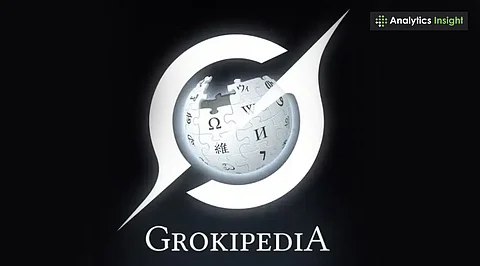Elon Musk is poised to disrupt the online information landscape with the launch of Grokipedia, an AI-powered knowledge platform designed to provide real-time, unbiased information. This initiative aims to address what Musk perceives as biases within Wikipedia, offering a transparent alternative that leverages artificial intelligence and real-time data to deliver up-to-date content.
Grokipedia is linked to Musk’s AI company, xAI, and is positioned to revolutionize how knowledge is curated and shared. Unlike Wikipedia, which relies on a volunteer-based model for content updates, Grokipedia intends to utilize AI for continuous information verification and updates. This innovation could potentially enhance the accuracy and reliability of online knowledge.
Musk has consistently criticized Wikipedia for what he describes as a politically charged environment that skews factual representation. He envisions Grokipedia as a neutral platform, employing large language models to detect misinformation and present verified facts. This shift towards AI-driven content could reshape user interactions with digital information.
How Grokipedia Works
Grokipedia is designed to provide immediate updates as new data becomes available. This approach addresses two primary concerns associated with Wikipedia: bias and outdated information. By integrating Grok AI, users may engage in real-time conversations, allowing for a more intuitive research experience. This feature could enable users to ask questions and receive answers derived from the latest available information, enhancing the overall user experience.
While Wikipedia has been a reliable resource since its inception in 2001, boasting over 6.8 million articles curated by volunteers, Grokipedia aims to streamline the knowledge-sharing process. The reliance on community contributions has allowed Wikipedia to build substantial trust among its users. In contrast, Grokipedia faces the challenge of establishing credibility in an AI-generated context.
Challenges Ahead for Grokipedia
Despite its innovative approach, Grokipedia must overcome significant hurdles, particularly in gaining user trust. Concerns about the potential for AI-generated inaccuracies, often referred to as “AI hallucinations,” could hinder its acceptance among users accustomed to human-curated content. Furthermore, questions remain regarding user participation. Unlike Wikipedia, which encourages contributions from its community, Grokipedia may limit user input, relying heavily on AI for content management.
Musk’s vision for Grokipedia aligns with his broader commitment to providing fair and accessible information. By prioritizing transparency, the platform plans to cite sources, enabling users to verify content authenticity. While the technical specifics of Grokipedia’s development remain undisclosed, it is anticipated that the platform will launch in the coming years, with some reports suggesting a target of 2025.
In summary, Grokipedia represents a bold new direction in the digital knowledge landscape. By combining the speed of AI with a commitment to unbiased information, Musk’s initiative could modernize how knowledge is accessed and shared. Yet, the challenge of replacing Wikipedia’s established trust and community engagement will be significant. As the project develops, it will be crucial to see how Grokipedia navigates these complexities to carve its niche in the world of online information.







































































